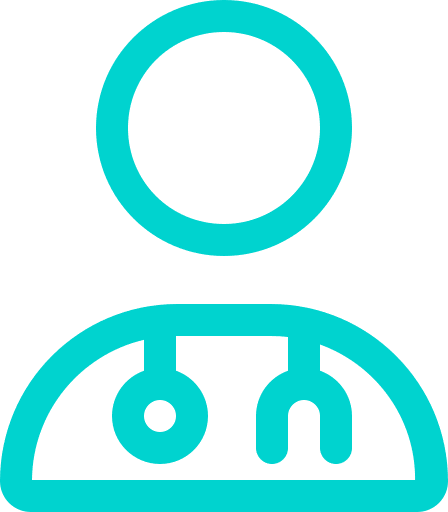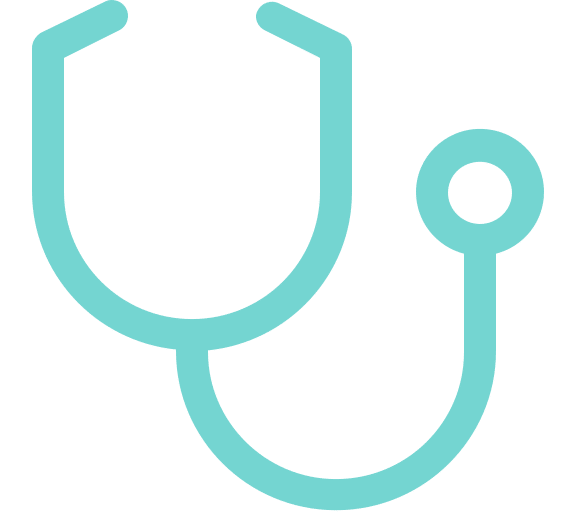Migraine Treatment
Ireland's Award-Winning Online Doctor Service
Migraine Treatments That We Can Provide
Migraine is a very common condition, affecting about 1 in 5 women and 1 in 15 men worldwide. Migraine episodes are generally characterised by a moderate to severe one-sided, throbbing headache with associated symptoms, such as nausea, vomiting, and sensitivity to light, sound or smell.
Migraine episodes can be very debilitating. To help reduce symptoms, we can prescribe common migraine treatments, such as anti-inflammatory painkillers, anti-sickness medicines, and triptan medicines.
Please note: this service is for patients who require treatment for acute migraine episodes. Unfortunately, we are unable to provide preventive (prophylactic) treatments for migraine. This can be arranged by booking a video consultation with one of our doctors here.
We only prescribe certain medications in each group. Prescriptions are for up to 6 months depending on the medication. Please check your dispensed prescription before leaving the pharmacy as no changes can be made after that point. For more information, please contact our team (info@webdoctor.ie).
Triptan Medicines
- Nasal Spray
- Tablets/Orodispersible Tablets
Anti-Inflammatory Medicines
Anti-Sickness Medicines
Included:
- There are four types of medicines that are used to treat acute migraine attacks:
- Simple painkillers, such as paracetamol
- Anti-inflammatory painkillers, such as ibuprofen and aspirin
- Triptan medications
- Anti-sickness medications
- Note: paracetamol, ibuprofen and aspirin can be purchased without a prescription from your pharmacy
Excluded:
- This service is not suitable for you if:
- You had your first migraine in the last 12 months
- Your migraine episodes began after you turned 50 years of age
- Your migraine symptoms have changed recently
- You have cardiovascular disease:
- Heart disease
- Heart attack
- Angina
- Coronary artery spasm (Prinzmetal’s Angina)
- Stroke or TIA (mini-stroke)
- Peripheral vascular disease
- High blood pressure
- If you have epilepsy or have ever had a seizure
- You have liver or kidney disease
Important Medical Information
Who is this service for?
This service is suitable for you only if you:
- Are between 17 and 65 years of age
- Have been diagnosed with the following types of migraine in the past by a doctor:
- Migraine with aura (classic migraine)
- Migraine without aura (common migraine)
- Are requesting this medication for yourself
- Need treatment for acute migraine episodes
Who is this service not suitable for?
This service is not suitable for you if:
- You have never been diagnosed with:
- Migraine with aura
- Migraine without aura
- You have been diagnosed with a different type of migraine, e.g. menstrual, abdominal, hemiplegic
- You are under 17 years of age or over 65 years of age
- You are requesting this medication for another adult or a child
- You are pregnant, planning to become pregnant or breastfeeding
- You had your first migraine in the last 12 months
- Your migraine episodes began after you turned 50 years of age
- Your migraine symptoms have changed recently
- You have cardiovascular disease:
- Heart disease
- Heart attack
- Angina
- Coronary artery spasm (Prinzmetal’s Angina)
- Stroke or TIA (mini-stroke)
- Peripheral vascular disease
- High blood pressure
- Heart disease
- If you have epilepsy or have ever had a seizure
- You have liver or kidney disease
- You need a prescription for preventative treatment or opiates.
What is a migraine?
Migraine is a moderate-severe headache, typically characterised by throbbing pain on one side of the head. It is episodic (lasting hours or even days) and there is complete resolution of symptoms in between attacks.
Many people experience additional symptoms such as:
-
Nausea and vomiting
-
Increased sensitivity to light, sounds or smell
Migraines typically start in early adulthood and peak during your thirties.
How long do migraine headaches last?
A migraine headache will typically last between 4 and 72 hours. There may be other phases that occur before or after the headache episode e.g. aura and recovery phases.
If a migraine headache persists longer than 72 hours you should seek medical advice.
How frequently do migraines occur?
Frequency of migraine varies with each patient.
Some people suffer from migraines on a regular basis, up to several times per week. Others only get migraines on occasion.
You should consult a doctor if you experience regular migraines (more than 4 days per month), even if they are manageable with medication. Preventative treatments should be discussed with you, as a better way to manage this. Speak to one of our Irish registered GPs online.
Are there different types of migraine?
There are several different types of migraine. The most common types of migraine are:
- Migraine with aura – known as a ‘classic migraine’
- There are specific warning signs just before the migraine begins; these can include visual disturbances such as seeing flashing lights or blind spots; or other disturbances such as difficulty speaking or tingling in the arms, legs or face.
- Migraine without aura – known as a ‘common migraine’.
- This is the most common type and occurs without any specific warning signs.
- Migraine aura without headache – known as ‘silent migraine’
- This is when an aura or other migraine symptoms are experienced, but no migraine headache develops.
There are other less common types of migraine, but these are not suitable for management via this service.
What causes migraines?
The underlying causes of migraine are not fully understood, although genetics, environmental factors, and imbalances in brain chemicals such as serotonin are all thought to play a part.
Migraine is not classed as an inherited condition. However, it often occurs in several members of the same family. Therefore, you are more likely to develop migraine if you have one or more close relatives who have migraine.
Some people associate migraine attacks with specific triggers, which can include:
- Hormonal changes – pregnancy, menopause, menstrual cycle changes or hormonal treatments such as contraception)
- Stress or anxiety – stress at work or home triggers 80% of migraines
- Fatigue (tiredness) – physical exertion, missing sleep, jet lag
- Drinks – alcohol (especially wine) and caffeine
- Foods & food additives – salty processed foods; monosodium glutamate (MSG); the sweetener, Aspartame
- Low blood sugar – skipping meals or fasting
- Dehydration
- Environmental factors – strong smells, bright lights, loud noises
These are very individual, and vary greatly between patients. If you identify a trigger, you should try your best to avoid it.
What treatments are there for acute migraine attacks?
Unfortunately, there is no cure for migraine, however, there are treatments available to help manage symptoms.
There are four types of medicines that are used to treat acute migraine attacks:
- Simple painkillers, such as paracetamol.
- Anti-inflammatory painkillers, such as ibuprofen and aspirin.
- Triptan medication.
- Anti-sickness medication
Note: paracetamol, ibuprofen and aspirin can be purchased without a prescription from your pharmacy.
What is the best painkiller for an acute migraine attack?
Over-the-counter painkillers, such as paracetamol, and anti-inflammatory painkillers, such as ibuprofen or aspirin, are very effective at relieving many migraine attacks.
Please note:
- Not everyone can use anti-inflammatory medications. If you have asthma, tummy problems such as heartburn/ indigestion or kidney problems they may not be suitable.
- If you are using aspirin, it should be taken at full dose (900mg, three times daily).
- Always check with your pharmacist, or one of our Irish-registered GPs before starting any new medications.
These medications work best if they are taken as early as possible after the first sign of a migraine episode and can reduce the severity of the headache, or even stop it completely. Many people wait until the headache has peaked to take these, and then they do not work as well.
Soluble painkillers are more easily absorbed, and can work more quickly. If you are unable to take oral painkillers (tablets) due to nausea or vomiting, suppositories may be a better option.
You should avoid codeine, and medicines that contain codeine, to treat migraines e.g. Solpadeine. This can make nausea & vomiting worse, but they are also more likely to lead to medication overuse headaches.
It is important to remember to make sure you read the instructions and patient information carefully and follow dosage recommendations when taking over-the-counter painkillers. Speak with your pharmacist if you have any queries.
What is a medication overuse headache?
Medication overuse headache is a type of headache that develops and gets worse with frequent use of painkillers in people who have migraine (or tension) headaches. It occurs for more than 15 days each month and can be debilitating. It is a common cause of daily headaches.
Medication overuse is defined as taking paracetamol or non-steroidal anti-inflammatory medication on more than 15 days per month or taking triptans/ combination analgesics (e.g. Solpadeine) on more than 10 days per month.
Around two-thirds of patients with chronic migraine have medication overuse and can develop medication overuse headaches, which is then often thought to be frequent migraine episodes.
If this condition is identified and treated appropriately, including suitable migraine management, it can have a very positive effect on daily quality of life.
The usual way of management is to wean off all medicines and then go on to preventative medicines.
What are triptans?
Triptans are an alternative treatment for acute migraine if simple painkillers or anti-inflammatory medications are not effective.
They are available as tablets, dissolvable tablets and nasal sprays (injection preparations are available in certain clinical situations, but we are not able to provide prescriptions for these via this service, or our video consultation service).
During a migraine, the blood vessels in the brain become enlarged (dilated). Triptans work by narrowing (constricting) the enlarged blood vessels and reducing the severity and duration of migraine attacks.
Unlike painkillers, you should not take these medications too early in a migraine episode; you should take them when the headache pain is starting, and not before (do not take them during the warning or aura phase).
There are several different types of triptans and people will find that one works better than another for them, so a little trial and error can be useful to find one that works for you. You should try a triptan during at least three acute migraine episodes before deciding if it is effective or ineffective. It is important to be aware that an effective triptan will not work for every migraine attack.
These medications are not suitable to use to prevent migraine attacks. They should only be taken to treat migraine that has been previously diagnosed by a doctor, as there are other causes of headaches. If triptans are not working, please arrange a medical review.
You should not take different types of triptan medication at the same time and you should never exceed the recommended dose.
What are the side effects of triptans?
Not everyone will experience side effects. If they do occur, they usually settle quickly. Examples include:
- Flushing/ warm sensation
- Dizziness
- Feeling of heaviness in the face, chest or arms/ legs
- Dry mouth
- Nausea/ vomiting
- Skin sensitivity/ tingling
- Drowsiness – if this does occur do not perform skilled tasks such as driving/ operating machinery
- Risk of medication-induced headache if taken too often (10 or more days per month)
Triptan chest tightness can mimic angina. If you experience this, it is not settling or you are concerned please seek urgent medical advice.
Triptan medications are generally safe if they are not used by those deemed to be unsuitable for this service; see section ‘Who is this service not suitable for?’
Please note, they cause constriction of blood vessels and should not be taken by those with or at risk of blood vessel disease. If your risk or medical history changes, the use of this medication should be discussed with your doctor or pharmacist. Book an online appointment with one of our GPs.
How do you use triptan medication for acute migraine episodes?
Triptans work quite quickly. Oral medications usually work within an hour of taking them, The nasal sprays work within 10-15 minutes.
After you have taken the first dose:
- If your headache settled but it returned later, you can repeat the dose after 2-4 hours. Each triptan has a daily maximum dose that should not be exceeded.
- If the triptan did not help at all, do not take a second dose. A second dose is unlikely to work with most triptans (there are some exceptions which can be found by reading the accompanying medication leaflet).
About 25% of people will find that if the triptan works to relieve the headache, it can return within 48 hours. If this happens, speak with your doctor so an appropriate management plan can be arranged.
Always read the patient leaflet that comes with your medication.
What are anti-sickness medications?
There are many different types of anti-sickness medications.
Our service can issue a prescription for a medication that is used to treat nausea and vomiting of various causes, including migraine.
It usually works within an hour of taking it and it can be taken up to three times in 24 hours if needed. It works best if you take it as soon as your symptoms begin.
Common side effects when using this as required for migraine include blurred vision, drowsiness and slowed reaction times. As a result, you should not drive or operate machinery when taking this and avoid alcohol as this makes side effects more likely.
If you experience other symptoms that you feel are related to this medication, speak to a doctor or your local pharmacist.
It is important to read the information leaflet that comes with your medication for full details of side effects.
There is a very rare risk of a serious condition called neuroleptic malignant syndrome. This causes high temperature, fast heart rate, sweating and confusion and requires URGENT medical assessment (call 999).
Can I use this service if I am pregnant or breastfeeding?
Most of the medications used to manage acute migraine episodes should be avoided if you are pregnant, trying to become pregnant or breastfeeding. You should speak directly with a doctor for advice. This service is not suitable.
Are there other things I can do to help with migraine symptoms?
Throughout the duration of a migraine it may be helpful to:
- Lie and/or sleep in a dark room with minimal noise
- Rest a cool pack on your head where you feel the throbbing sensation
- Keep well hydrated
- Limit stress and anxiety (if possible)
If you have known triggers, staying away from these will reduce the likelihood of a migraine occurring.
Are there other things I should know about migraine?
It is important to make an appointment with your doctor if:
- Your migraine symptoms change
- Your treatment is not working
- You are using medication frequently to control your symptoms (more than 10 days per month)
- You are having more than 4 episodes of migraine per month
Here, you can find more information on migraine and migraine treatment.
How It Works
Requesting a prescription for Migraine Treatment couldn’t be easier with Webdoctor.ie! Simply fill in a medical questionnaire and a prescription will be issued if clinically suitable.

Step 1
Online Questionnaire

Step 2
Medical Review

Step 3
Decision Made
Webdoctor.ie
Customer Review
Why Choose Webdoctor.ie?

Expertise
All of our doctors are registered with the Irish Medical Council and provide convenient and confidential healthcare to our patients.
Confidential
Caring
Convenience
Value
Irish
Webdoctor.ie is an Irish-based healthcare provider trusted by over 800,000 patients.
Webdoctor.ie In The Media
As Ireland's leading online doctor service, Webdoctor.ie is regularly featured in the national media.
Want to know more about us?
Visit our media page